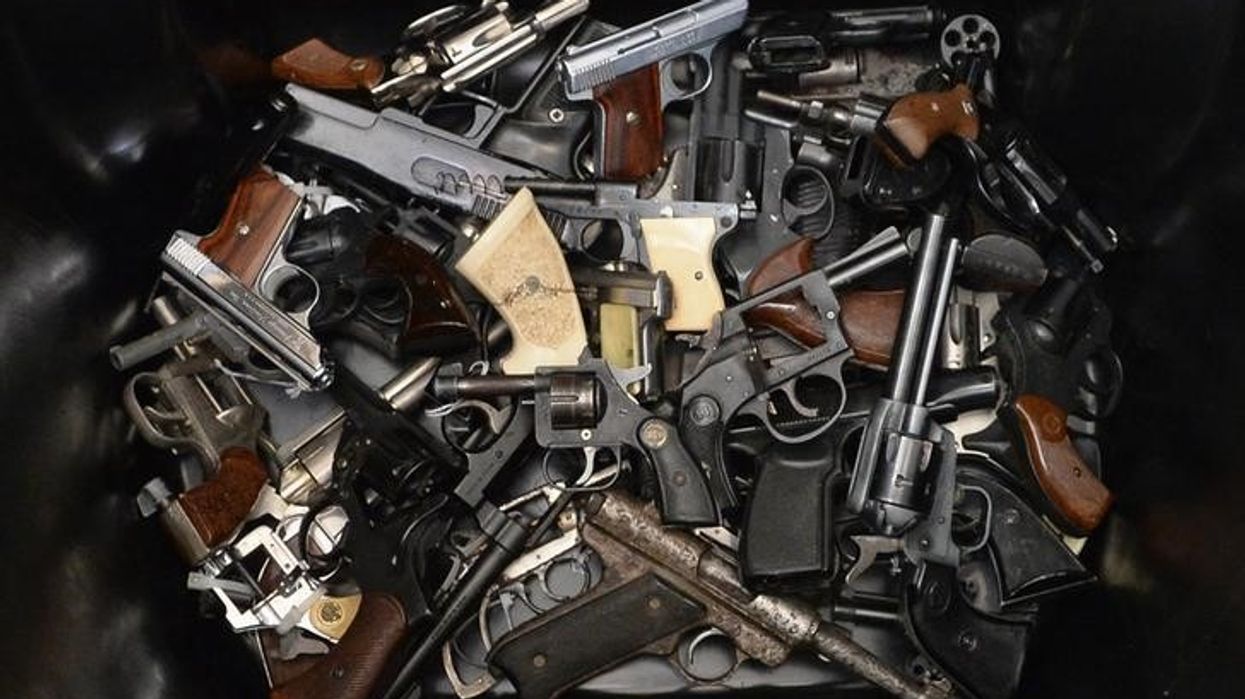Zombie Republicans Keep Making Sure That Guns Kill Kids
Right after a 28-year-old shot six people to death at a small Christian school, Rep. Tim Burchett, a Tennessee Republican, emoted on camera. "Three precious little kids lost their lives," he said with sad resignation, "and I believe three adults."
Burchett then defended the killer's right to own the three weapons she carried onto the grounds of the Covenant Presbyterian Church, located in a pretty Nashville neighborhood.
"It's a horrible, horrible situation, and we're not going to fix it," he said. "Criminals are gonna be criminals, and my daddy fought in the Second World War ... he told me, 'Buddy, if somebody wants to take you out and doesn't mind losing their life, there's not a whole heck of a lot you can do about it.'"
He's not entirely wrong about criminals being criminals. But criminals elsewhere don't have the easy access to the firepower that this woman used to rapidly kill six on a lovely spring day.
Did Burchett see this quiet, leafy neighborhood as comparable to the jungle hells of wartime Pacific? And must he rationalize sick people wanting to "take out" 9-year-olds, when, actually, there are things to do about it.
No matter. There's no making moral sense of the political zombies who take orders from the National Rifle Association.
But there are civic and political leaders who can see how rampant gun violence can damage their economies. Nashville has been a hot growing city, but corporations considering a move there must be taken aback by this latest mass murder.
Such outrages are happening elsewhere, but this one happened in a state where a woman being treated for severe mental disturbance and whose parents didn't want her to have guns was able to legally purchase seven of them, including two assault-style weapons. Tennessee already allows permitless carry, with no requirement for training. And, of course, guns don't have to be licensed.
Bills are now before the state legislature that would let 18-year-olds carry long guns in public without a license. It should be hard recruiting high-quality workers to a place where they must assess whether a fellow shopper carrying a rifle is OK or will explode if you accidently bump your cart into his?
There is widespread support for universal background checks, for safe storage, for red-flag laws to prevent someone who might commit harm purchase an AR-15. Only 19 percent "strongly oppose" more gun laws.
Very few airline passengers want to crash their planes. Nonetheless, we accept stringent security checks at airports.
It may be true that you can't entirely stop someone willing to sacrifice her own life from killing others, you don't have to swamp America with the killing machines that most anyone — criminal, nuts or both — can buy. And today's are more powerful than the weaponry used in Vietnam.
And it's not just the guns themselves. It's the worship of them. It's the politicians who send out Christmas cards of themselves grinning as they brandish assault rifles. There isn't much we can do about these people's right to mock a religion of peace, but we can easily vote them out of office.
Nashville police prevented a bigger horror by their fast and brave response. But suppose road work had slowed the response by two minutes? Are we supposed to find solace in there being only six dead?
When employers consider relocating, they may well look at numbers in addition to tax rates. They may include the number of gun deaths per 100,000 population — which is 3.7 in Massachusetts but 21.3 in Tennessee.
And as the Nashville example shows, putting children in private schools is not enough to protect them from gun violence.
Follow Froma Harrop on Twitter @FromaHarrop. She can be reached at fharrop@gmail.com. To find out more about Froma Harrop and read features by other Creators writers and cartoonists, visit the Creators webpage at www.creators.com.
Reprinted with permission from Creators.


